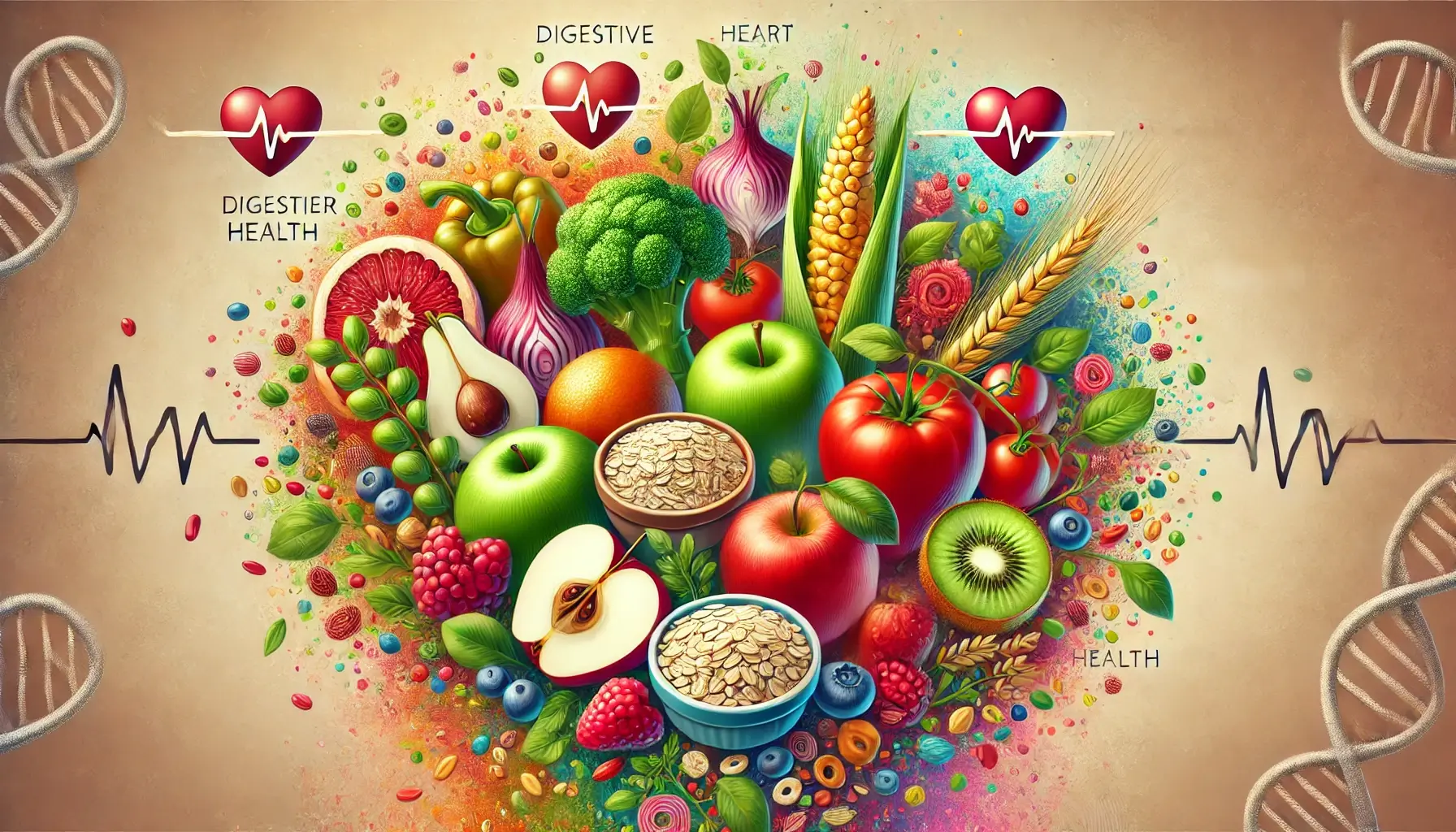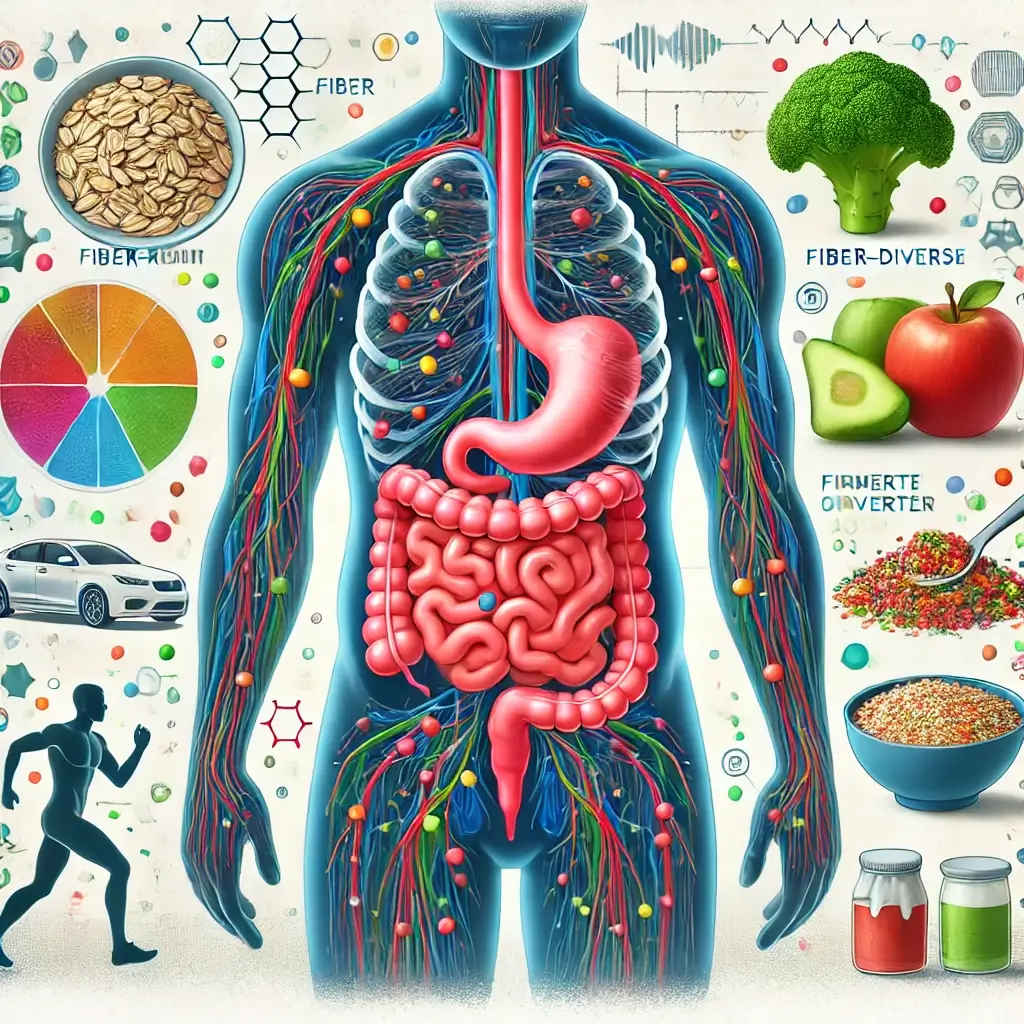Unlock the Power of Fiber: The Secret to Better Health and Wellness
Benefits of Fiber-Rich Foods
Fiber is a carbohydrate that our bodies cannot fully digest. However, it is important for our digestive health and overall well-being. Here is a breakdown of the benefits of consuming fiber-rich foods:
Promoting Digestive Health
Regularity is essential for keeping a healthy digestive tract, and fiber helps with this process. Fiber, which may be found in various plant-based foods, including fruits, vegetables, whole grains, and legumes, is a vital component of a healthy diet.
Preventing Digestive Problems
Fiber promotes the smooth transit of food through the digestive tract, which helps to prevent common digestive problems such as constipation and hemorrhoids.
Alleviating Constipation
Constipation is an unpleasant condition marked by infrequent or difficult bowel movements. Fiber helps bulk up the feces, making it simpler for them to travel through the intestine.
Improving Overall Well-Being
This, in turn, helps to relieve the tension and discomfort that come with constipation. Regular bowel movements are not only necessary for good digestive health but can also improve overall well-being.
Reducing the Risk of Hemorrhoids
Fiber helps to reduce constipation while also lowering the risk of getting hemorrhoids. Hemorrhoids are bulging veins in the lower rectum or anus that can be caused by severe strain during bowel movements.
Promoting Healthy Bowel Movements
Fiber promotes regular and smooth bowel movements, which reduces strain and pressure on these sensitive veins, lowering the risk of hemorrhoid development.
A Natural Approach to Digestive Health
A diet high in fiber-containing foods is an effective and natural strategy to promote regularity and a healthy digestive system. A fiber-rich diet, combined with other lifestyle factors such as staying hydrated and engaging in regular physical exercise, can improve overall gastrointestinal health and help prevent common digestive disorders.
Supporting Your Gut Microbiome
Fiber serves as a prebiotic, nourishing the beneficial bacteria in your gut. These bacteria help maintain a healthy gut microbiome, which is necessary for digestion, nutrient absorption, and immune function.
Other Health Benefits of Fiber
Fiber can also aid in weight management by helping you feel fuller for longer, lowering your calorie consumption and aiding in weight loss attempts.
Blood Sugar Control
Fiber can help regulate blood sugar levels by reducing the absorption of sugar from food into the body. This is advantageous for individuals with diabetes or prediabetes.
Promoting Heart Health
Oats, beans, and other fruits contain soluble fiber, which may help lower LDL (“bad”) cholesterol levels and reduce the risk of heart disease.
Lowering Cancer Risk
Research indicates that a high fiber intake may be associated with a lower risk of colorectal cancer.
Meeting Your Daily Fiber Goals
Adults should aim for 25 grams of fiber daily for women and 38 grams for men, but many fall short. Fiber-rich foods include fruits, vegetables, whole grains, legumes (beans and lentils), and nuts.
Tips for Increasing Fiber Intake
If you’re new to a high-fiber diet, start slowly to minimize bloating and gas. When taking extra fiber, drink enough water to aid digestion and absorption.
Conclusion: Embracing a Fiber-Rich Diet
Remember, fiber is a vital component of a healthy diet. Incorporating fiber-rich foods into your meals and snacks can provide various health benefits and improve overall well-being.













